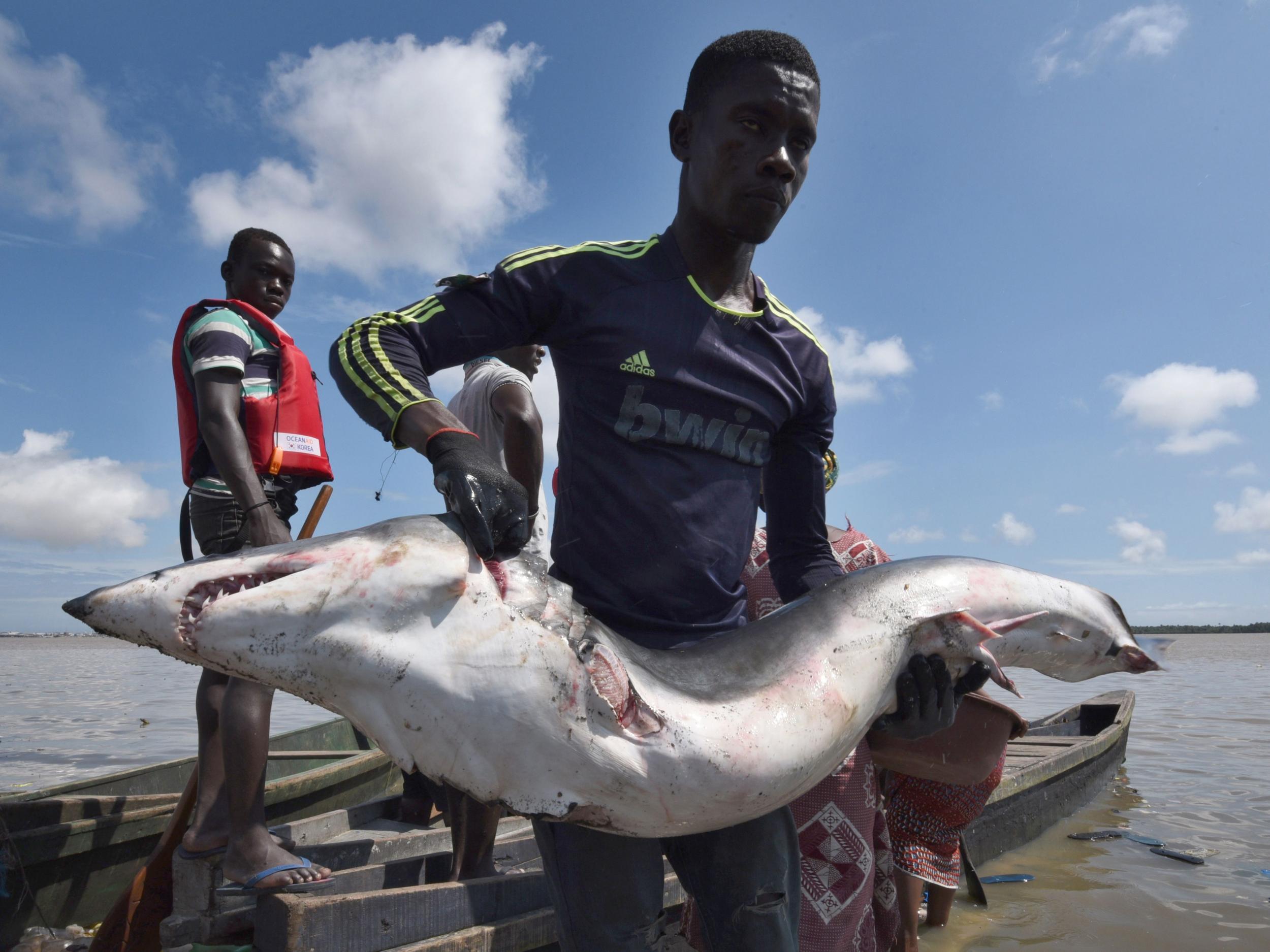Overfishing driving dozens of species into extinction threatening African food crisis, warn experts
‘The growing extinction threat to fish off the central and western coast of Africa could seriously undermine food security across the region,’ IUCN says

Your support helps us to tell the story
From reproductive rights to climate change to Big Tech, The Independent is on the ground when the story is developing. Whether it's investigating the financials of Elon Musk's pro-Trump PAC or producing our latest documentary, 'The A Word', which shines a light on the American women fighting for reproductive rights, we know how important it is to parse out the facts from the messaging.
At such a critical moment in US history, we need reporters on the ground. Your donation allows us to keep sending journalists to speak to both sides of the story.
The Independent is trusted by Americans across the entire political spectrum. And unlike many other quality news outlets, we choose not to lock Americans out of our reporting and analysis with paywalls. We believe quality journalism should be available to everyone, paid for by those who can afford it.
Your support makes all the difference.Overfishing off the west coast of Africa threatens to drive many species to extinction, which could cause food shortages for local people, conservationists have warned.
The International Union for Conservation of Nature (IUCN) said the Madeiran sardine and other important sources of food could be wiped out.
Some 37 species were classed as threatened with extinction and 14 more were said to be “near threatened” from Angola in the south to Mauritania in the north.
Illegal fishing in these waters is a significant problem with complaints that European fishing fleets are taking too many fish.
Pollution, degradation of habitats, the spread of invasive species and the warming of the waters caused by human-induced climate change are also all putting pressure on fish populations.
The IUCN’s director-general, Inger Andersen, said: “The growing extinction threat to fish off the central and western coast of Africa could seriously undermine food security across the region.
“Fish provide a major source of animal protein for coastal communities, which account for around 40 per cent of this region’s population.
“In a part of the world where poverty reduction remains a challenge, preserving the rich diversity of marine fish species will help safeguard the livelihoods of local communities.”
Experts studied the populations of some 1,288 bony fish species, the vast majority of those found off Africa’s west coast.
Of those classed as threatened or near threatened, 39 were targeted by fishing fleets and many were food staples.
In a statement about the study, the IUCN said: “The Madeiran sardine, now listed as vulnerable, is one of three sardine species which are all considered overfished within the region.
“The endangered Cassava croaker is estimated to have declined by 30 to 60 per cent over the past 10 years, primarily due to overfishing.
“Croakers are particularly important to local subsistence fishers, who will be most affected by stock declines.”
The area is famed for its fishing grounds with places like the Niger delta providing rich breeding grounds for fish.
But this has been affected by serious oil pollution, development, and the conversion of mangrove swamps for human uses.
Piracy has been a problem in this area, with some fishermen turning to crime after struggling to make a living. Some have blamed European fleets for stripping the seas of fish.
“The study highlights the severely limited capacity for fisheries surveillance and enforcement in the region, leading to illegal fishing and overfishing that imperils national and regional management efforts,” the IUCN said.
“In many countries illegal catches represent over 40 per cent of the reported legal catch.”
The IUCN said marine resources provided food and livelihoods for nearly 400 million people living in western and central African countries with a marine coastline.
Idriss Deffry, marine and coastal coordinator for the IUCN programme for western and central Africa, said: “For the first time, we have comprehensive knowledge of the presence and population status of all marine fishes in the region.
“This will provide critical information for improved fisheries and marine protected area management, and identify further research and conservation efforts needed.”
Join our commenting forum
Join thought-provoking conversations, follow other Independent readers and see their replies
Comments